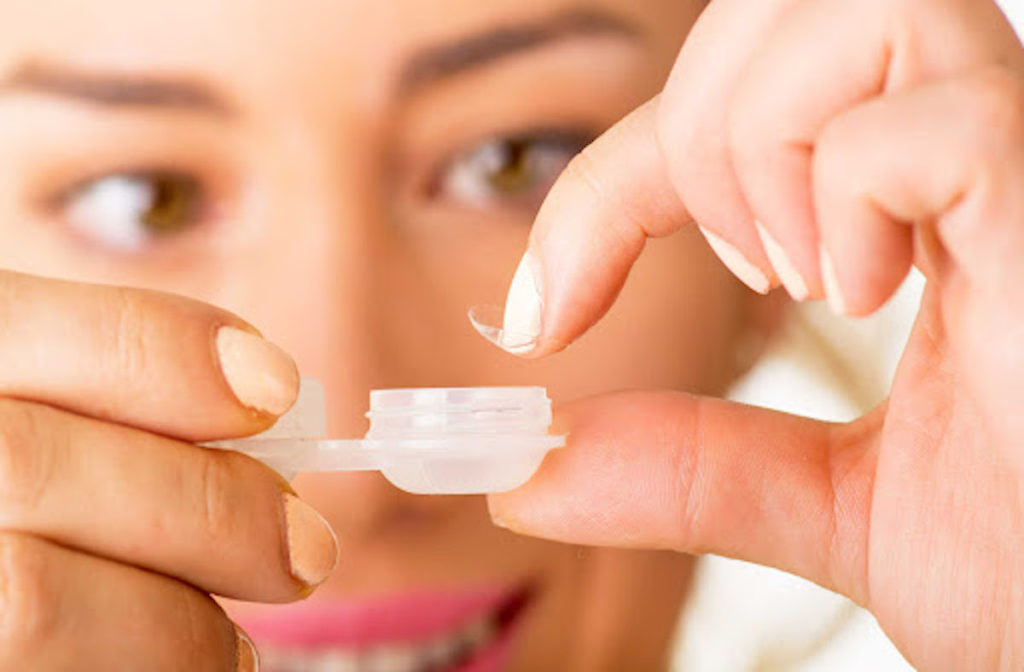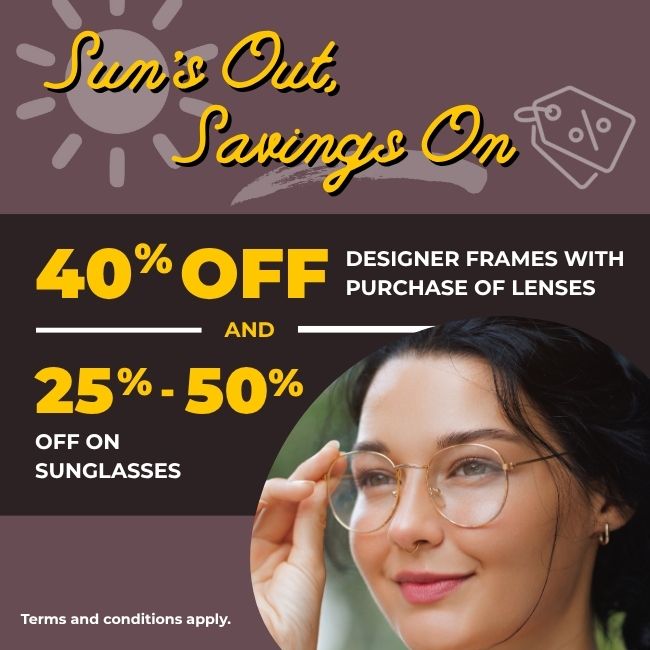Overnight Lens Wear
You’ve probably heard that you’re not supposed to sleep while wearing contact lenses. But when you’re contact lenses are properly fitted, you may forget you’re even wearing them. While wearing contacts every day, you might leave the lenses in while napping or wear your lenses longer than recommended.
Sleeping in your lenses can have side effects. But there are also lenses prescribed for overnight wear. So how can you tell which is which?
How Long Can Your Wear Contacts?
Most contact lens wearers are familiar with the 2 main types:
- Soft contact lenses are made from flexible plastic that conforms to the eye shape. The softer material can be easier to adjust to and are the most popular choice. Newer materials (silicone hydrogens) improve oxygen flow and comfort but can increase lens deposits leading to dry eye or infection.
- Rigid gas permeable (RGP) lenses are made from durable plastics that allow oxygen flow. The sturdy material allows for sharp vision, even when blinking. RGP lenses can also be a better choice for patients with dry eyes, as the lenses don’t contain water, and there’s less organic buildup.
All types of contact lenses are based on these 2 types. How long you can wear your lenses—and whether they’re appropriate for night wear—depends on whether your contact lenses are daily-wear or extended wear.
Daily Wear Contact Lenses
Daily wear contact lenses are intended for single-day use and are not reusable. However, they have the least required care as you don’t need to clean the lenses at the end of the day. How many hours you can wear the lenses vary depending on your eye health and corneal sensitivity. Usually, daily disposable lenses are wearable for 8–16 hours daily.
You should never wear daily wear or disposable lenses overnight. Reusing the lenses or wearing them during a nap increases the risk of infection. In addition, daily wear lenses are thinner than other lenses. As a result, cleaning solutions can break down or damage the material.
Extended Wear Contact Lenses
Extended-wear contact lenses are designed for repeat wear, including overnight wear. Although extended wear typically refers to soft contact lenses, it can also apply to specific RGP lenses.
Patients can usually wear extended-wear lenses for up to 7 days without removal. However, there are some FDA-approved options for up to 30 days. For example, a soft contact lens may be disposable after a week of wear. Or follow a planned replacement schedule every 2 weeks, monthly, or quarterly.
Due to continuous wear risks, discussing your options with an eye care professional is essential. Your optometrist can evaluate if you’re a candidate for extended-wear lenses during a contact lens exam and fitting.

Is Extended-Wear Safe?
Although extended-wear contact lenses have FDA approval, most eye care practitioners recommend daily disposable over extended-wear. Sleeping in your contact lenses makes you 6–8 times more likely to develop an eye infection, such as keratitis. Even with appropriate contact lens care, protein and lipid buildup on the lens can cause discomfort and inflammation.
It’s essential to give your eyes a contact lens break. It may feel convenient to keep your lenses in for days or weeks, but your eyes need a rest. Overwearing your contact lenses can sometimes lead to contact lens intolerance.
While silicone hydrogel soft lenses have improved oxygen flow, extended wear poses a risk of hypoxia. Therefore, giving your eyes an oxygen and hydration break is beneficial. Extended-wear RGP lenses may be better for oxygen and moisture retention, as the lens covers less surface area. Notably, there’s an RGP lens explicitly designed for night wear.
Ortho-k
Orthokeratology or ortho-k uses is prescribed for overnight wear. Ortho-k is a type of myopia control where the rigid lenses gently reshape the cornea (eye surface). Then, the lenses are removed in the morning, resulting in clear vision during the day.
By wearing the lenses during sleep, ortho-k lenses help slow eye growth to prevent worsening myopia (nearsightedness). Ortho-k lenses are reusable, and patients should follow a careful cleaning routine to ensure safe wear.
What if You Accidentally Fall Asleep?
So you accidentally doze off without removing your lenses. What should you do? Step one is taking your lenses out, regardless of whether you have daily disposable or extended-wear lenses.
Don’t pull if the lenses feel stuck. You may need to add lubrication, such as rewetting drops or eye drops safe for contact lenses. You can also try repeatedly blinking to stimulate tear production.
After removal, give your eyes a break. Avoid wearing contact lenses for at least one day. Keep track of how your eyes are feeling or if you notice any symptoms, including:
- Blurry vision
- Dry eye
- Eye discharge
- Eye discomfort
- Headache
- Light sensitivity
- Redness or swelling
Contact your optometrist if you experience symptoms. Severe symptoms, including pain or vision changes, require an emergency appointment.
Discuss Your Wear Time
Sleeping with contact lenses can increase the risk of eye problems, but it’s not always bad. It’s crucial to understand the type of contact lens and follow your optometrist’s recommendations.
Talk to your optometrist about your wear time. They can help you determine if extended wear is appropriate and how to care for your lenses so you can feel comfortable long-term. Book an appointment at Calgary Optometry Centre today!




